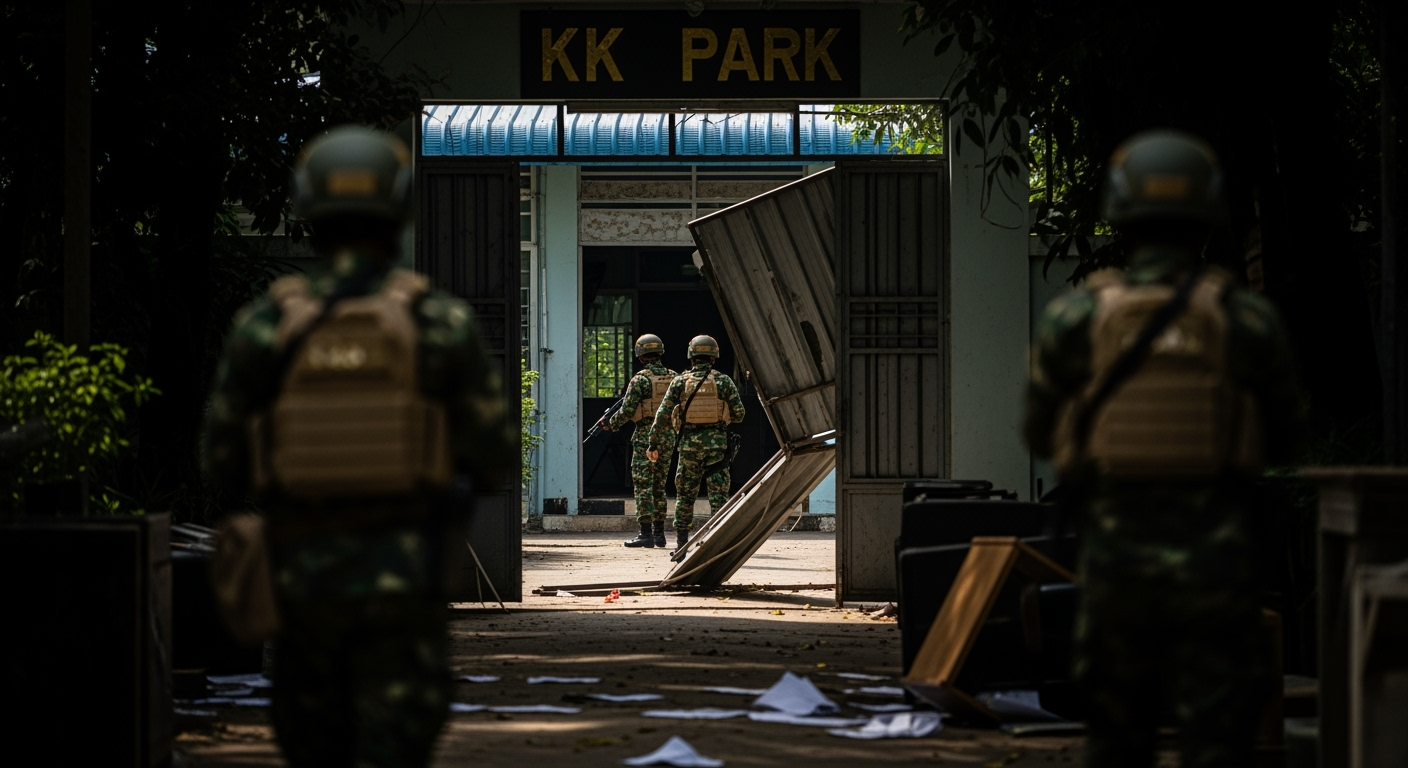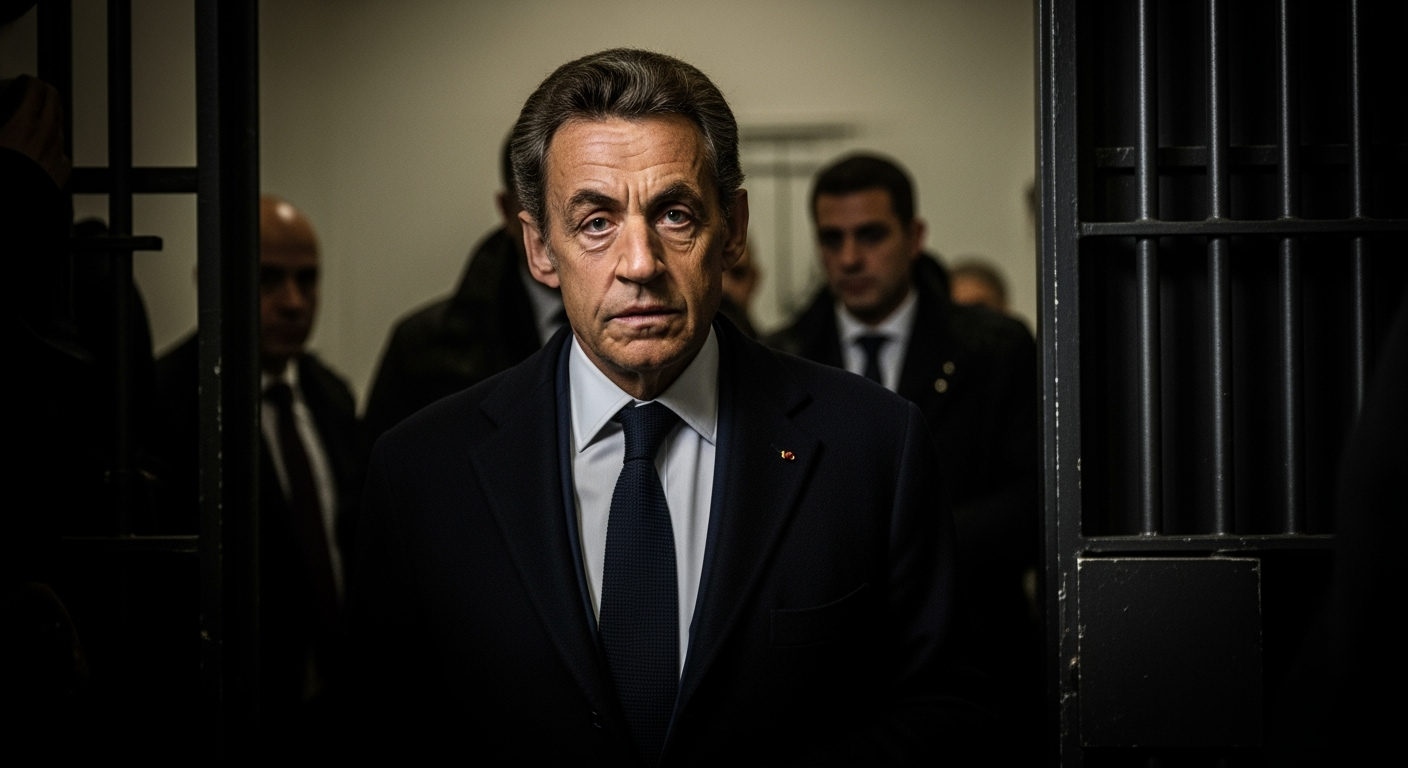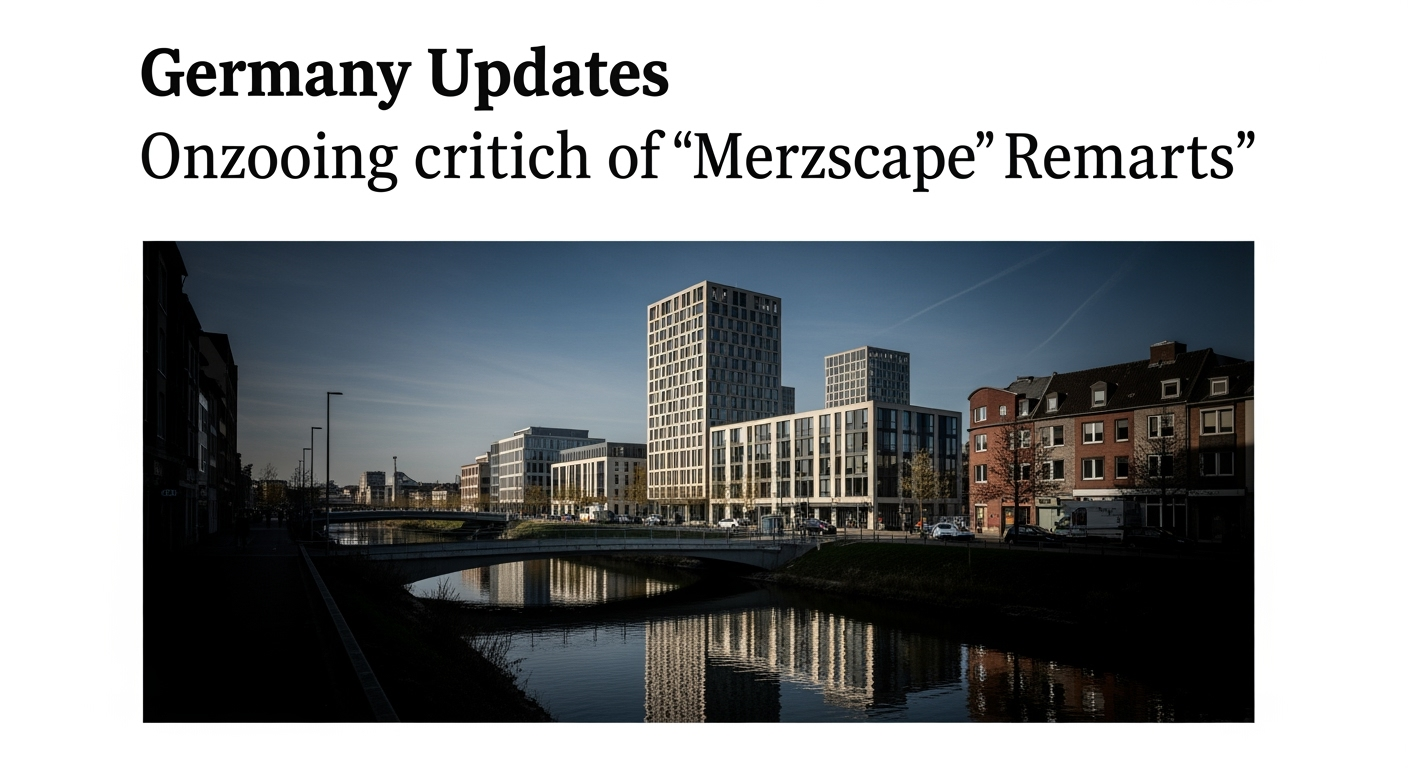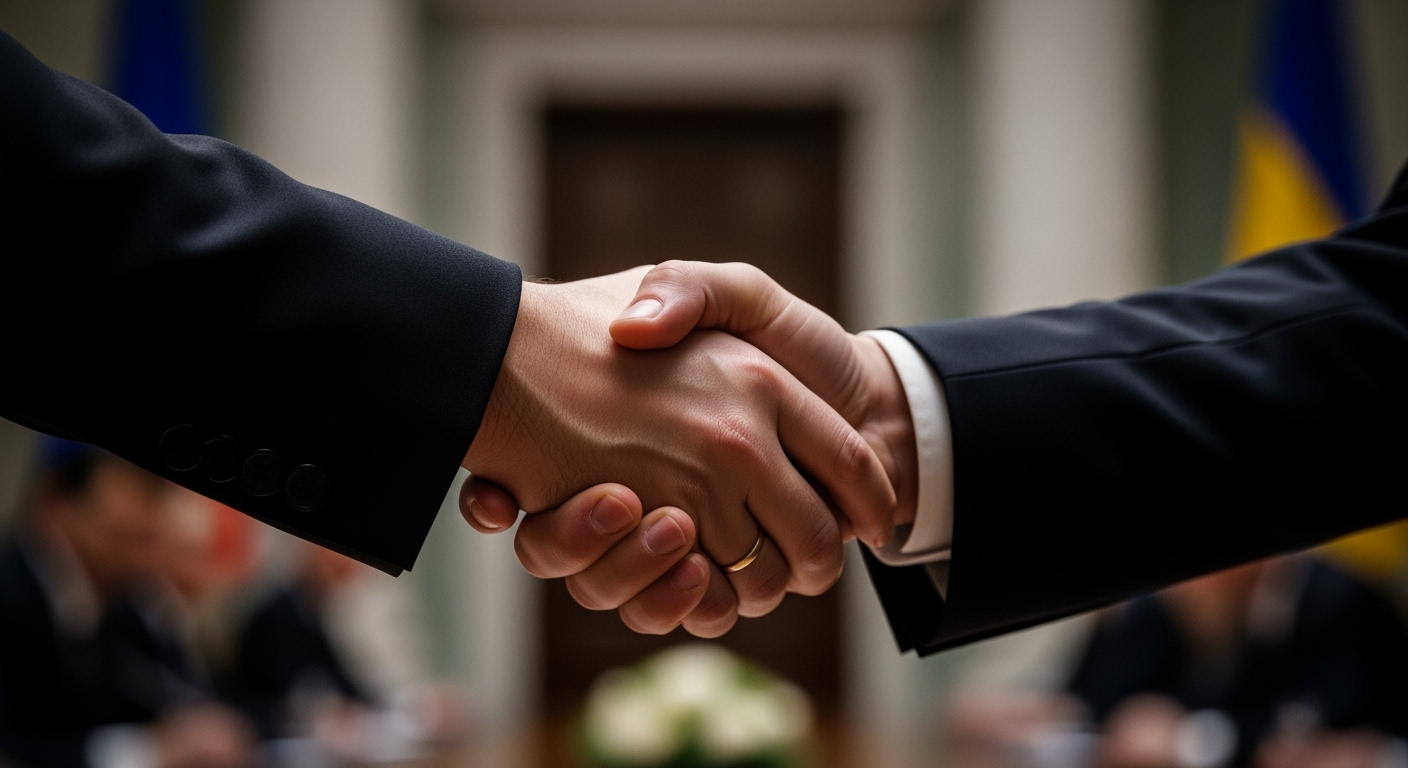Related Articles

Myanmar Military Raids Notorious Cyberscam Hub, Detaining Thousands and Seizing Advanced Equipment

Former French President Nicolas Sarkozy Begins Prison Sentence for Campaign Finance Conspiracy





Ukrainian President Volodymyr Zelenskyy has indicated his readiness to participate in a potential summit alongside Russian President Vladimir Putin and former U.S. President Donald Trump, provided he receives a formal invitation. The proposed meeting, aimed at brokering an end to the three-and-a-half-year conflict in Ukraine, is anticipated to take place in Budapest, Hungary, in the coming weeks. This development signals Ukraine's cautious openness to high-level diplomatic engagement, even as significant concerns remain regarding the venue and the format of any such discussions.
President Zelenskyy's willingness to join the planned Budapest summit hinges on specific conditions regarding the meeting's structure. He stated he would agree to participate if the invitation is for a "three-way" meeting or a "shuttle diplomacy" format, where President Trump would meet separately with Putin and then with Zelenskyy. This approach underscores Ukraine's desire for direct engagement and its insistence on a structured dialogue that respects its sovereign interests. The Ukrainian leader's statement comes amidst renewed efforts by Mr. Trump to facilitate a peace agreement since his return to the White House earlier this year.
Despite his conditional readiness, President Zelenskyy voiced strong objections to Hungary as the chosen location for the summit. He critically assessed the choice, highlighting Hungary's "tense relationship with Kyiv" and its Prime Minister Viktor Orban's perceived pro-Kremlin stance. Zelenskyy asserted his belief that a prime minister who "blocks Ukraine everywhere" cannot contribute positively or provide a balanced perspective to such sensitive negotiations.
Of particular concern for Kyiv is the historical precedent associated with "Budapest." Zelenskyy explicitly rejected "another 'Budapest' scenario," referencing the 1994 Budapest Memorandum. Under that agreement, Ukraine, Belarus, and Kazakhstan relinquished their nuclear arsenals in exchange for security assurances from Russia, the United States, and the United Kingdom, assurances that were demonstrably violated by Russia's 2014 annexation of Crimea and the full-scale invasion in 2022. This historical context deeply informs Ukraine's skepticism towards any new agreements made in Budapest without robust, enforceable guarantees. Kyiv has previously suggested alternative neutral locations for a trilateral meeting, including Turkey, Switzerland, and the Vatican, indicating a preference for venues less politically fraught.
Mr. Trump has been a vocal proponent of ending the prolonged conflict in Ukraine, consistently aiming for a "speedy end" since assuming office. His efforts include advocating for direct talks between Ukrainian and Russian officials and a previous summit with President Putin in Alaska. However, these diplomatic initiatives have yet to yield any significant breakthroughs. Mr. Trump's approach to the conflict has been characterized by a degree of variability; he has, at times, expressed support for Ukraine regaining its full territory with Western assistance, while at other junctures, he has suggested freezing current battle lines. A recent "tense discussion" between Mr. Trump and President Zelenskyy at the White House reportedly saw the Ukrainian leader accept the idea of freezing front lines but urged the U.S. to exert greater pressure on Moscow. This underscores the complex and sometimes challenging dynamic between the two leaders, even as the U.S. seeks to broker a peace deal.
The prospect of a trilateral summit introduces another layer of complexity to the already intricate geopolitical landscape surrounding the Ukrainian conflict. President Putin's readiness to meet Mr. Trump in Budapest has been explained by the Kremlin as a reflection of the "warm relations" between Mr. Trump and Prime Minister Orban, and "constructive relations" between Mr. Putin and Orban. This choice of venue is further complicated by the fact that the International Criminal Court (ICC) has issued an arrest warrant for President Putin on war crimes charges, and Hungary has notably initiated the process of withdrawing from the ICC. These factors suggest potential political maneuvering and strategic considerations influencing the selection of Budapest. The ongoing conflict, now in its fourth year, has reshaped global alliances and significantly impacted international security. Any high-level talks involving these key leaders would undoubtedly carry immense weight, signaling both potential pathways to de-escalation and the deep-seated challenges in achieving a lasting peace.
President Zelenskyy's measured willingness to engage in a trilateral summit with President Putin and Mr. Trump highlights Ukraine's desperate search for a diplomatic off-ramp to the devastating conflict. While open to dialogue, Ukraine maintains a firm stance on the terms and location of such critical talks, drawing lessons from past diplomatic failures and current political realities. The proposed Budapest summit, if it materializes, represents a high-stakes diplomatic gamble, potentially offering a path toward resolution but fraught with historical mistrust, complex personal dynamics, and significant geopolitical challenges. The world watches as the possibility of this unprecedented meeting emerges, carrying with it both the promise of peace and the perils of unresolved conflict.